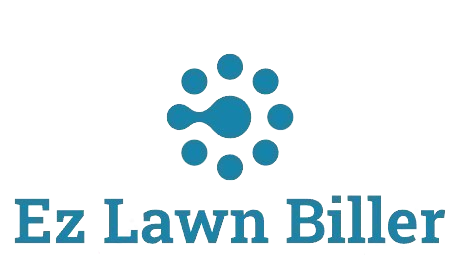How to Stay Compliant in Your Lawn Care Business
Maintaining compliance in your lawn care business is crucial for your success and longevity. This post dives deep into the key aspects of compliance, offering practical tips, insights, and strategies to help you stay on the right side of the law. We’ll cover labor regulations, environmental standards, financial practices, and the importance of proper licensing and insurance. By the end, you’ll have a comprehensive understanding of how to keep your lawn care business compliant, efficient, and thriving.
Starting a lawn care business can be an exciting venture, yet with the excitement comes a host of responsibilities beyond just mowing grass and trimming hedges. Compliance with local, state, and federal regulations is not just a legal requirement; it’s essential for building trust with your clients and ensuring a sustainable operation. In this article, we will explore various aspects of compliance that every lawn care business owner should prioritize to protect their business and ensure long-term success.
We’ll begin by discussing the importance of understanding labor regulations, as these can significantly impact your workforce management. Next, we’ll delve into environmental regulations that affect your services, including the use of chemicals and waste disposal. Following that, financial compliance will be addressed, particularly in relation to invoicing and taxes. Finally, we will cover licensing and insurance, which are vital for protecting your business assets and reputation.
Understanding Labor Regulations
One of the first steps to ensuring compliance in your lawn care business is to familiarize yourself with labor regulations. These laws govern how you hire, pay, and manage your employees. According to the Fair Labor Standards Act (FLSA), you need to adhere to minimum wage requirements and ensure accurate tracking of hours worked. Failure to comply can lead to hefty fines and legal repercussions.
Additionally, you should be aware of worker classification. Misclassifying employees as independent contractors can have significant legal implications. Ensure that your hiring practices are transparent and that you’re providing the necessary benefits and protections required by law. For instance, if you employ seasonal workers, it’s essential to know what benefits they are entitled to and how to properly classify their employment status.
Training your staff on workplace safety is also crucial. The Occupational Safety and Health Administration (OSHA) has guidelines specific to landscaping and lawn care that you must follow. Providing safety training can not only keep your employees safe but also minimize potential liability for your business.
Environmental Regulations in Lawn Care
As a lawn care provider, you’re likely to use various chemicals and fertilizers that can impact the environment. Compliance with environmental regulations is critical to ensure that you are using these products safely and responsibly. The Environmental Protection Agency (EPA) regulates the use of pesticides and herbicides, and it’s important to follow the guidelines regarding their application and storage.
Many states also have specific regulations concerning the use of certain chemicals, so it’s essential to familiarize yourself with local laws in your operating area. For example, some regions may have restrictions on when and how pesticides can be applied, especially during certain weather conditions. This not only protects the environment but also safeguards your clients’ health.
Incorporating environmentally-friendly practices can also enhance your business’s reputation. Utilizing organic fertilizers and sustainable landscaping practices not only keeps you compliant with regulations but can also attract environmentally-conscious clients. Consider investing in [lawn service software](https://ezlawnbiller.com/) that tracks and schedules your eco-friendly services.
Financial Compliance and Billing Practices
Financial compliance in your lawn care business revolves primarily around accurate billing and invoicing practices. To maintain compliance, you must keep meticulous records of all transactions, including services rendered and payments received. This will help you during tax season and in the event of an audit.
Implementing a reliable [lawn billing software](https://ezlawnbiller.com/) can automate invoicing and payment tracking, ensuring that your records are always up to date. With tools that allow you to customize invoices and automate recurring billing, you can minimize errors and improve cash flow management.
Moreover, it’s crucial to understand your tax obligations as a business owner. Familiarize yourself with sales tax regulations that apply to the services you provide. In some areas, lawn care services may be taxable, and you need to collect and remit this tax appropriately. Keeping a close eye on your financial compliance not only protects your business from penalties but also boosts your credibility with clients.
Licensing and Insurance Requirements
Operating your lawn care business without the necessary licenses and insurance can open you up to significant risks. Each state has its own licensing requirements for lawn care services, which can include general business licenses, pesticide applicator licenses, and more. Ensure that you are compliant with local regulations by researching what is required in your area.
Insurance is another critical aspect of compliance that cannot be overlooked. Liability insurance protects your business from claims arising from accidents or damages that occur during the course of your work. Additionally, consider getting workers’ compensation insurance to cover any injuries your employees may sustain on the job.
Having these protections in place not only helps you comply with legal requirements but also builds trust with your clients. They are more likely to hire a lawn care provider that is fully insured and licensed, knowing that their property is in safe hands.
Best Practices for Compliance
To make compliance a part of your business culture, consider implementing best practices that prioritize legal and ethical standards. Regularly review and update your policies to reflect changes in regulations, and keep your employees informed about compliance requirements. Schedule training sessions that cover both labor and environmental regulations, ensuring everyone understands their responsibilities.
Maintaining an organized documentation system is also essential. Store all relevant licenses, employee records, and financial documents in an easily accessible manner. This will not only simplify audits but also help you track compliance effectively.
Utilize technology to your advantage. For instance, [lawn service software](https://ezlawnbiller.com/) can help streamline your operations, from client management to service tracking, ensuring that compliance checks are integrated into your daily processes.
Staying Ahead of Regulatory Changes
Regulations can shift, so it’s essential to stay informed about any changes that may affect your lawn care business. Join industry associations or networks that provide updates on compliance issues relevant to landscaping. Subscribing to newsletters or following regulatory agencies on social media can also keep you in the loop.
Networking with other lawn care professionals can provide valuable insights into compliance best practices. Share experiences and resources to ensure everyone in your community is operating within legal boundaries. This cooperative approach can foster a culture of compliance and responsibility among local businesses.
Consider conducting regular compliance audits within your business. This will help you identify any gaps or areas for improvement, allowing you to make necessary adjustments before issues arise.
The Role of Technology in Compliance
Technology plays a significant role in facilitating compliance for lawn care businesses. Modern [lawn service apps](https://ezlawnbiller.com/) can help you manage many aspects of compliance, from scheduling services to tracking chemical applications. With cloud-based solutions, you can access your business information anytime, anywhere, which is invaluable when it comes to maintaining accurate records.
Utilizing a comprehensive service company software can also streamline your operations, allowing you to focus on service delivery rather than administrative tasks. This not only saves time but also ensures that you meet all compliance requirements efficiently.
Investing in technology can significantly reduce the administrative burden of compliance, freeing you to provide exceptional service to your clients. This dual focus on technology and compliance can position your lawn care business as a leader in your industry.
Conclusion
Compliance in the lawn care industry may seem daunting, but it is vital for the success and sustainability of your business. By understanding labor and environmental regulations, maintaining financial accuracy, and securing the necessary licenses and insurance, you can build a compliant operation that earns the trust of your clients.
Implementing best practices, staying informed of regulatory changes, and leveraging technology are essential steps to ensure ongoing compliance. As you navigate these complexities, remember that compliance is not just a legal obligation; it’s a commitment to professionalism and excellence in your lawn care business.
Embrace the tools and resources available to you, like [lawn company software](https://ezlawnbiller.com/), to enhance your operational efficiency and compliance. As you take these steps, you’ll not only protect your business but also pave the way for long-term growth and success. Start today by assessing your compliance practices and looking for areas to improve—your business will thank you!




